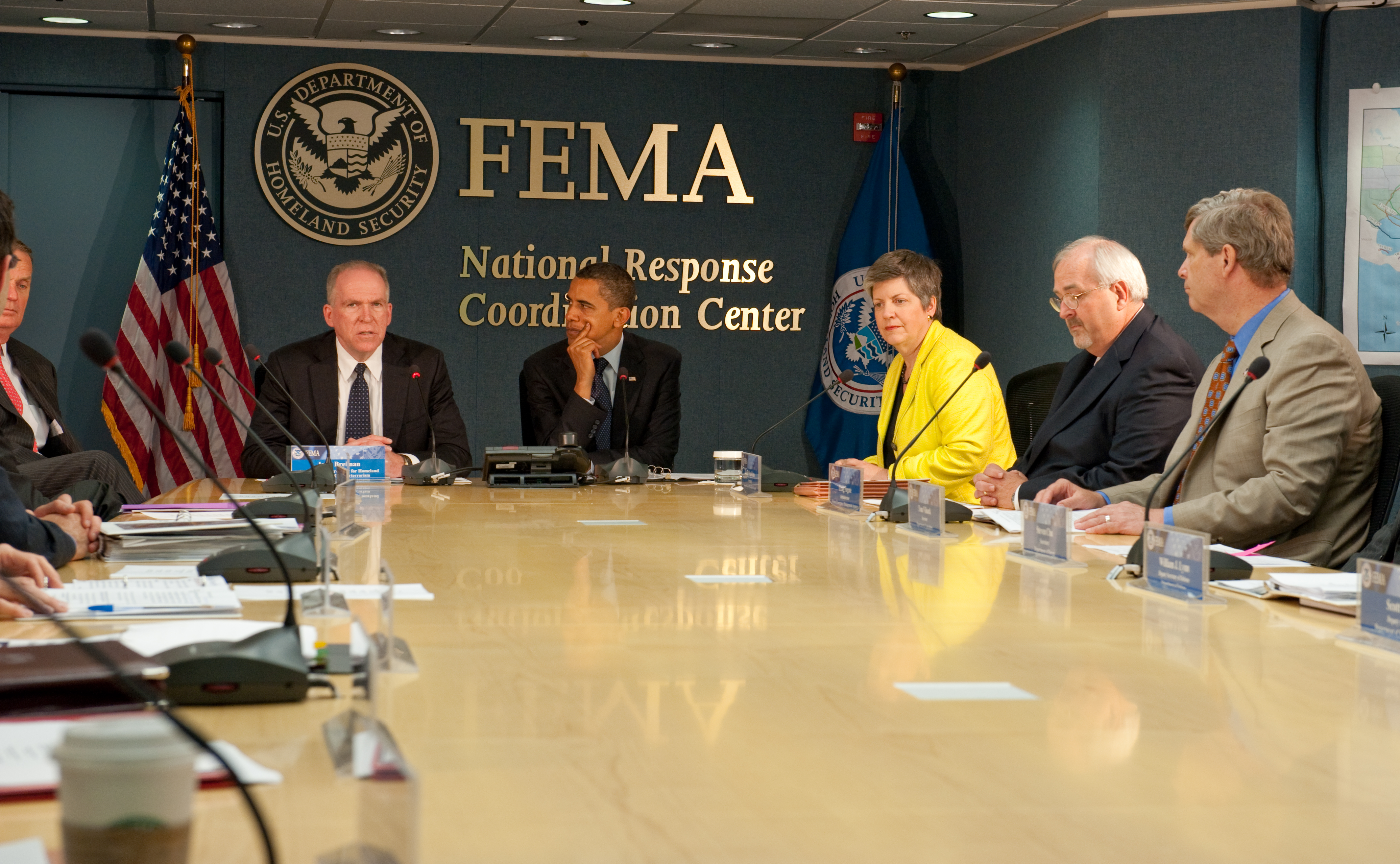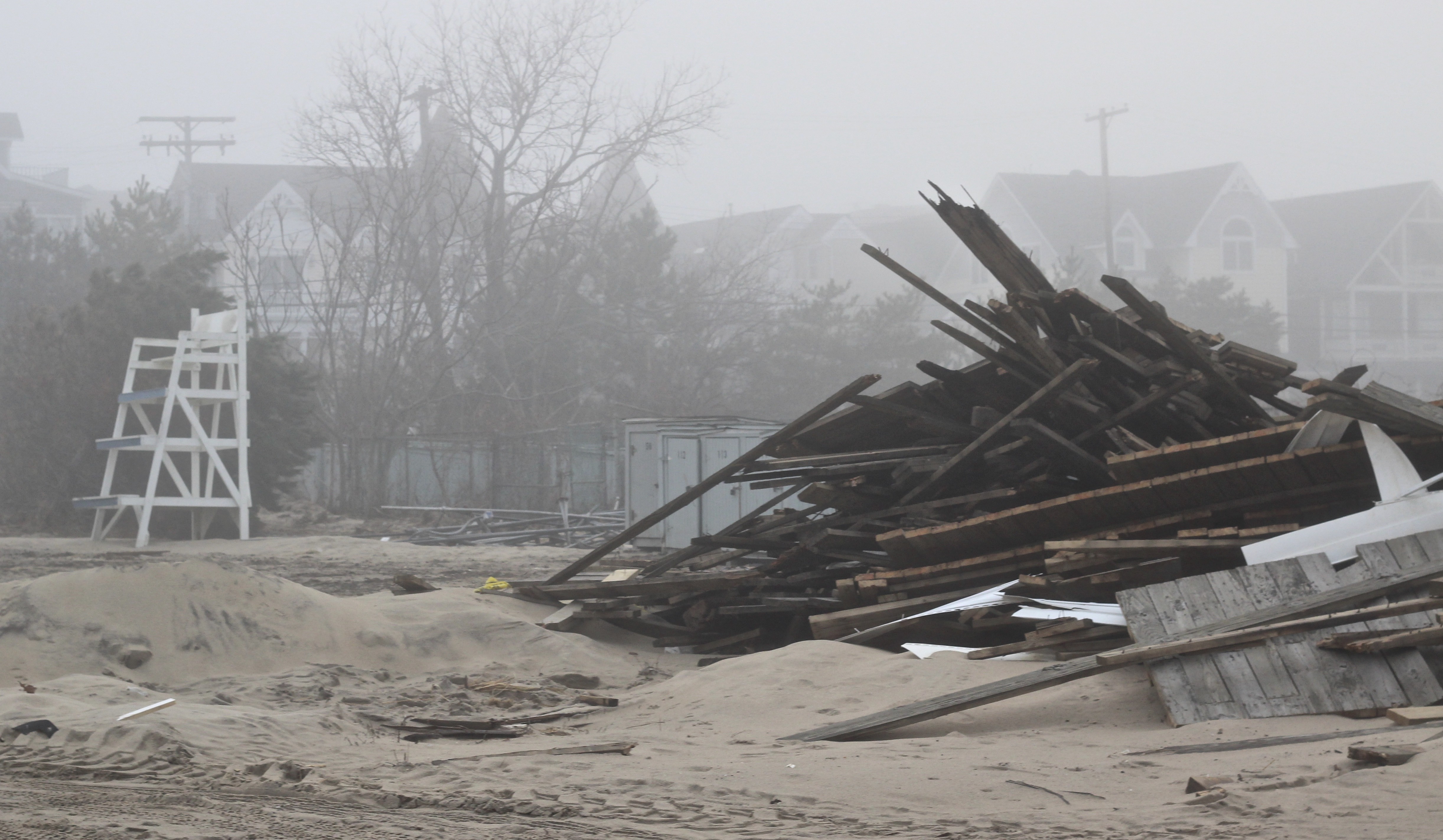Get ready for an eventful 2013 hurricane season. NOAA’s Climate Prediction Center estimates that three to six major hurricanes (Category 3, 4 and 5; winds of 111 mph or higher) will make appearances this fall. Where and when, exactly, no one knows. But in the event of a storm like Hurricane Sandy, coastal homeowners and communities will need to prepare accordingly and consider evacuating. Sandy, bear in mind, made landfall on New Jersey and New York as a Category 1 hurricane, with 90 mph winds. That October 2012 storm cost the U.S. $70 billion in direct losses and economic output — and put the National Flood Insurance Program (NFIP) $25 billion in debt.
So if a Category 1 hurricane can render such a devastating dent in the NFIP, and if we can expect worse hurricanes this year (and arguably every year in the foreseeable future), why would politicians delay a crucial reform to the NFIP that would save our government money by requiring homeowners to pay for the risk of living on the coast?
The reform in question, the Biggert-Waters Act of 2012, also known as the Flood Insurance Reform Act, was signed into law by President Obama one year ago this month. The law is intended to ease the burden carried by the federal government after storms like Sandy. The act targets properties previously covered by the NFIP’s “grandfather” rule, which allows homeowners to keep lower flood insurance rates that were in place when they built or bought their homes. Grandfathered rates have allowed homeowners to live on the coast without internalizing the monetary risks of doing so. Simply put, the NFIP cannot afford to recoup the repetitive losses of homeowners with such low insurance rates.
Along with increasing flood insurance premiums, Biggert-Waters will mandate new Flood Insurance Rate Maps (FIRMs). FIRMs determine the zones of risk that stratify policyholders into different premiums. Unlike current FIRMs, however, the updated maps are to include climate change related threats, such as rising sea levels and more intense storms. Equipped with a new metric for flood insurance rates that reflect the actuarial risk of living in vulnerable coastal areas, the NFIP can apply pressure to coastal homeowners who will become effectively uninsurable in the future.
Yet a problem with Biggert-Waters is that it hits low-income homeowners the hardest. Louisiana Representative Maxine Waters, an original sponsor of the legislation, has criticized the act for rashly imposing “punitive or unaffordable rate hikes that could make it difficult for some to remain in their homes.” Waters has a point. Some coastal homeowners might see their rates climb 100 times higher than they had paid with federal subsidies.

But delaying the act, as Waters’s fellow Louisiana Representative Bill Cassidy has proposed, won’t put homeowners out of harms way this fall — because delaying the act won’t reduce the damage coastal cities and towns will face after the arrival of all but inevitable storms. Nor will delaying the act stop sea levels from rising. Still, delaying the act will grant much needed economic relief to those hit hard by the recession, and by recent storms. For that reason, delaying the act, as the House has chosen to do and the Senate and President Obama similarly might, is widely viewed as a politically lucrative move.
While legislative relief might seem invaluable to coastal homeowners today, worsening damage from this year’s hurricane season might render the discussion moot, and in tragic fashion. The same coastal infrastructure network that was devastated by a Category 1 hurricane last fall is hardly prepared to face new storms of greater ferocity. But it remains to be seen whether leaders are prepared to face political consequence for decisive action, action that, soon enough, will probably save lives.
